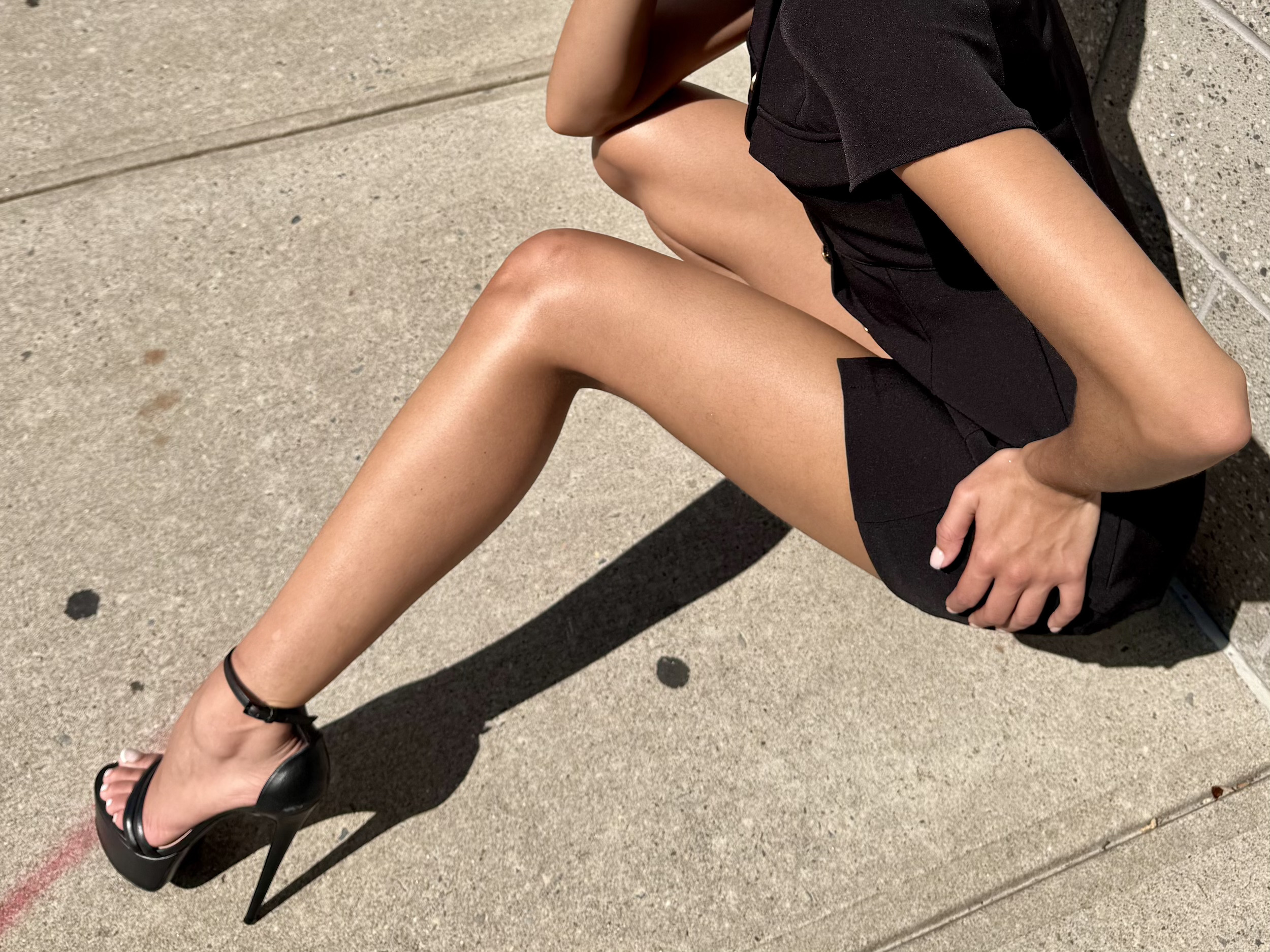NORTH STARS:
Gender Equality
Waste Management
Certifications
“It’s important to ask the right questions, research the vendors, and understand who you’re working with.”
In a sleek Manhattan showroom, Ruthie Davis adjusts the strap of one of her signature metallic platform heels. Towering in height yet surprisingly comfortable, the design reflects her philosophy of combining bold aesthetics with practicality. Known for creating statement footwear worn by stars like Beyoncé, Lady Gaga, and Ariana Grande, Davis sees her shoes as more than just fashion. They are, in her words, tools of empowerment— designed to help women stand taller, feel stronger, and command attention wherever they go. Davis isn’t just focused on making a statement with her ambitious platform heel designs; she’s also committed to ensuring her creations leave a lighter footprint on the planet.
Davis’s career reflects the same precision and intention as her iconic platform heels. From spearheading product transformations at Reebok and UGG to building her own brand, her path highlights adaptability in the ever-changing fashion industry — one that’s increasingly scrutinized for labor practices, waste, and fast-paced production.
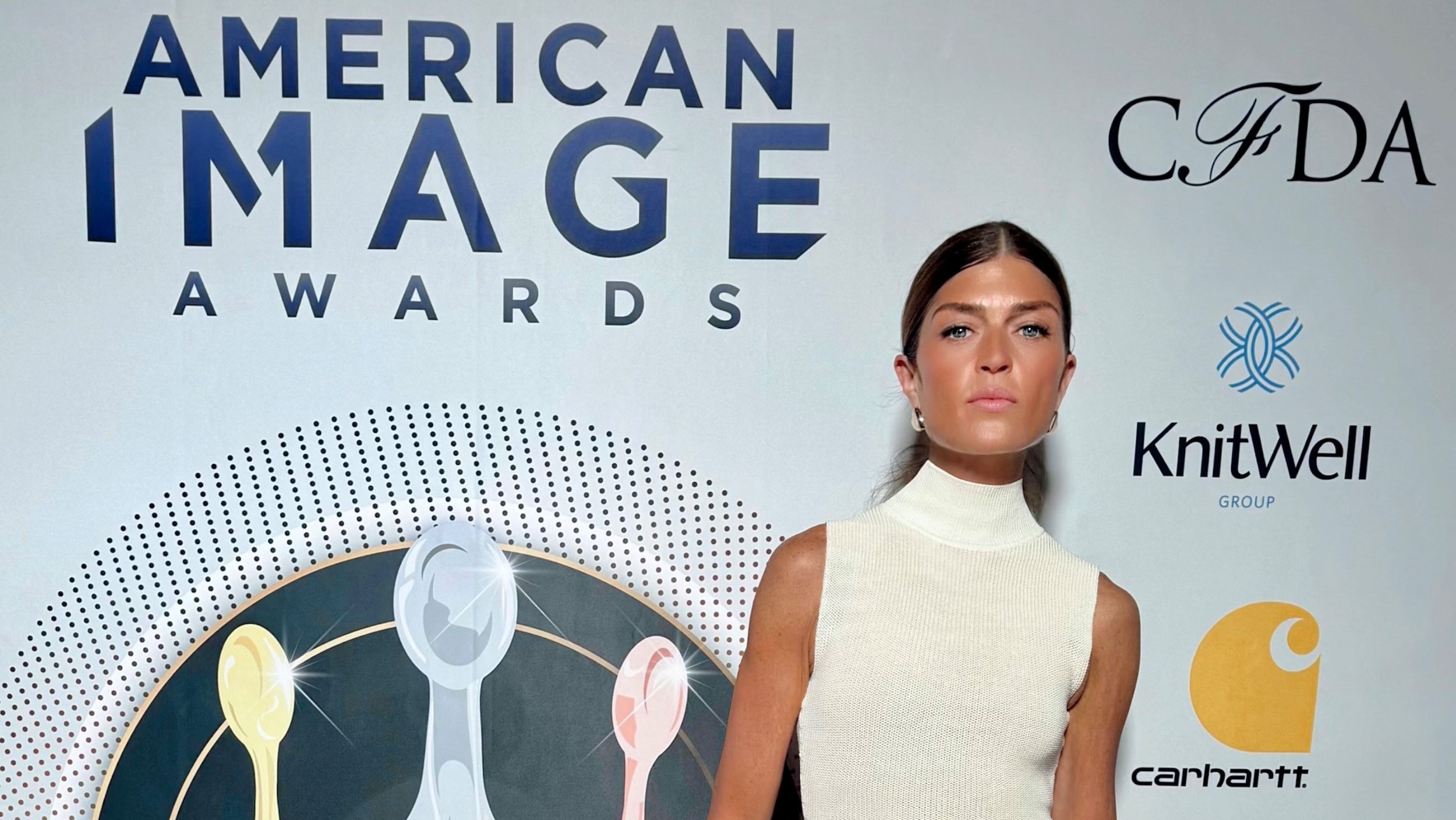
Founder Ruthie Davis. Image courtesy of Ruthie Davis
Corporate Beginnings and Defining Moments
Ruthie Davis didn’t set out to be a product manager when she interviewed for a marketing role at Reebok. But after a single day of interviews, she accepted a position as Associate Product Manager for Reebok Walking. “I think they saw my ability to bring something different to the team,” she says. Her work eventually led to her promotion as Director of Reebok Classic, where she spearheaded efforts to modernize the line. “We introduced new colors, details, and materials inspired by streetwear and fashion trends. That really resonated with our customers.”
Her success at Reebok caught the attention of UGG, where she became Vice President of Marketing and Design. At UGG, she worked to shift the brand from a niche surfer aesthetic to a global fashion player. “This was a critical step for me,” she recalls. “It gave me the tools to think strategically about building my own brand one day.”
Afterward, Davis joined Tommy Hilfiger, overseeing women’s footwear. “Tommy Girl Shoes was my focus, and I enjoyed the challenge of creating styles that appealed to a younger, trend-driven audience,” she says. While she valued her time there, she eventually realized her true ambition: “I wanted to be Tommy Hilfiger, not work for him. That’s when I began taking steps to launch Ruthie Davis.”
The Power of Platform Heels
Known for her signature platform heels, Davis draws inspiration from her teenage years. “Growing up in the ’70s, platform shoes were everything,” she recalls. “My older sister bought me my first pair, and I remember feeling so powerful. Suddenly, I was as tall as my siblings.” That transformative experience stuck with her, and today, platforms remain at the heart of her designs.
For Davis, platform heels are about more than aesthetics. She explains that the platform design provides both height and comfort. “A 5-inch heel with a 2-inch platform reduces the pitch of your foot, so it feels more like wearing a 3-inch heel,” she says. “I’ve worn mine for 12 hours straight — they’re that comfortable.”
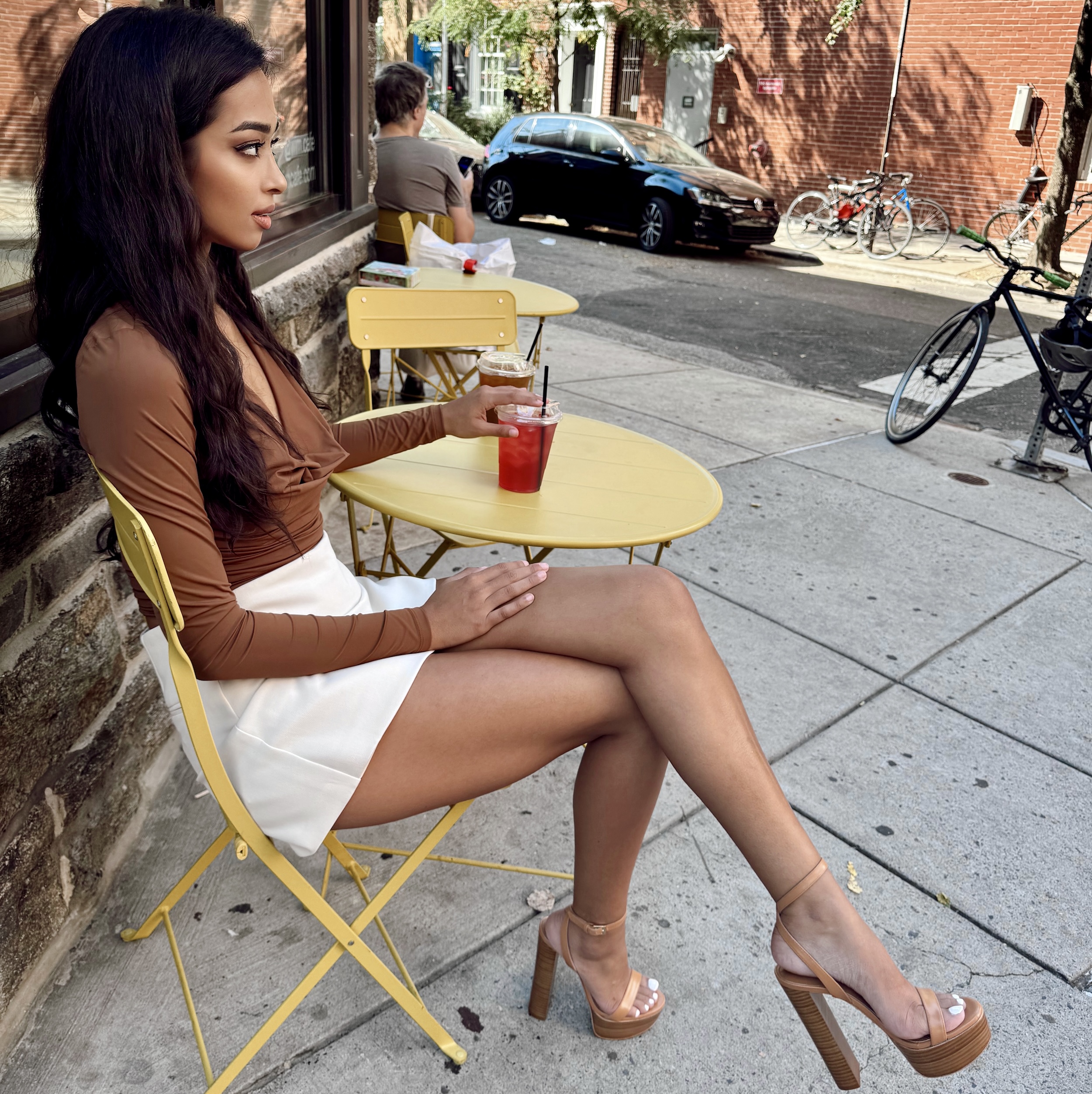
A model wearing Ruthie Davis designs in New York. Image courtesy of Ruthie Davis
Sustainability in Practice
Sustainability is becoming a key focus for Davis, and she’s taking a thoughtful, pragmatic approach to integrating it into her brand. “I don’t market sustainability as a selling point,” she says. A tenet of that sustainable focus is durability and resale value. Davis has worked to build brand recognition so her shoes have resale value on the secondhand luxury market. “No one is throwing away their Ruthie Davis heels,” she says.
“I focus on creating shoes that last, so customers see the value in investing in them, taking care of them, and using them for years,” she says. Davis ships her shoes in 100% recyclable packaging made from 70% recylced materials. Shoes come wrapped in recycled tissue instead of plastic.
As far as materials, Davis experimented with vegan offerings but found pleather, or plastic leather, problemantic. Instead, Davis plans to introduce bio-leather made from apples in her 2025 collection, an innovation she’s particularly excited about. “The issue with many vegan leathers is that they’re made from plastics, which come with their own environmental challenges,” she notes. “Bio-leather feels like a breakthrough because it’s truly sustainable and still high-quality.”
For her leather shoes, Davis works with factories that source material certified by the Leather Working Group (LWG). The organization promotes responsible environmental practices in the leather industry. “The two tanneries my factory works with are LWG-certified,” she explains. “It’s important to ask the right questions, research the vendors, and understand who you’re working with.” Her tanneries also have the Brazilian Leather Certification of Sustainanability, or CSCB. “You can check certifications or even look up your suppliers’ practices online.”
On her website, the “Impact” page outlines how running a small, curated brand inherently reduces waste. “By offering fewer designs and focusing on quality, we minimize overproduction and waste,” she explains. She also believes that smaller brands have a role to play in creating a more sustainable fashion industry. “We don’t cut corners; we make our shoes more affordable by being smart in all decisions and not being greedy on the margins,” she says. Davis wants consumers to see the value in supporting independent businesses which often have less environmental impact compared to larger corporations.
To that end, Davis has started working with a team from Loyola Marymount University on a sustainability project. The collaboration aims to educate customers about the impact of their choices through marketing campaigns and social media content, with a focus on inspiring mindful purchases.
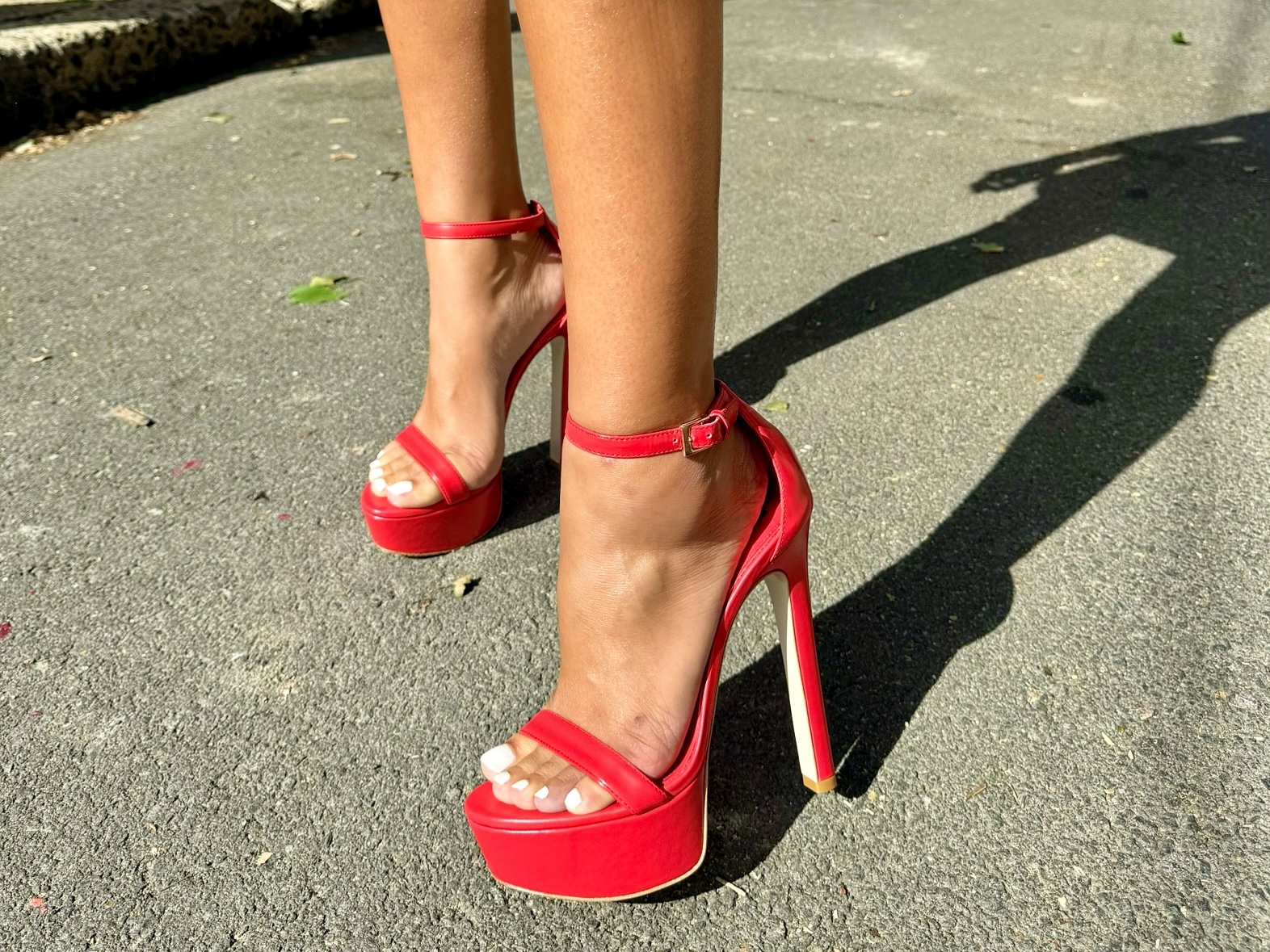
Platforms shoes are the Ruthie Davis signature. Image courtesy of Ruthie Davis.
Designing for Women, as a Woman
The footwear industry has long been dominated by male designers, particularly in the high-heel category. “It’s strange when you think about it—men designing the shoes that women wear to feel sexy and confident,” Davis says. “As a woman, I understand how the shoes should feel, and I test-drive my designs myself. It’s an advantage.”
When she first launched her brand, Davis named it “Davis” to evoke a sleek, one-word identity like Prada or Chanel. But when celebrities like Beyoncé and Lady Gaga began wearing her heels, many assumed the designer was a man. “I remember my PR agent telling people I was a woman, and they were shocked—and excited,” she says. “That’s when I decided to rebrand under my full name, Ruthie Davis. It felt more personal and authentic.”
Navigating Challenges
Launching her own business came with significant obstacles, particularly as a self-financed entrepreneur. “I didn’t want the pressure of someone else’s money,” she says. Davis used savings from her corporate career to start the brand but acknowledges that financial hurdles remain steep for independent designers.
“The barriers to entry in fashion are incredibly high,” she says. “You’re competing with luxury giants like Gucci and Louboutin, or accessible brands like Steve Madden. When I started in 2006, selling through department stores was the only option, and that’s a costly and difficult route.”
To remain profitable, Davis pivoted to a direct-to-consumer model, selling exclusively through her website. She also relocated production to Brazil, a more affordable alternative to Italy, and moved her operations into a home office. “It was about being smart with resources and cutting unnecessary costs,” she explains.
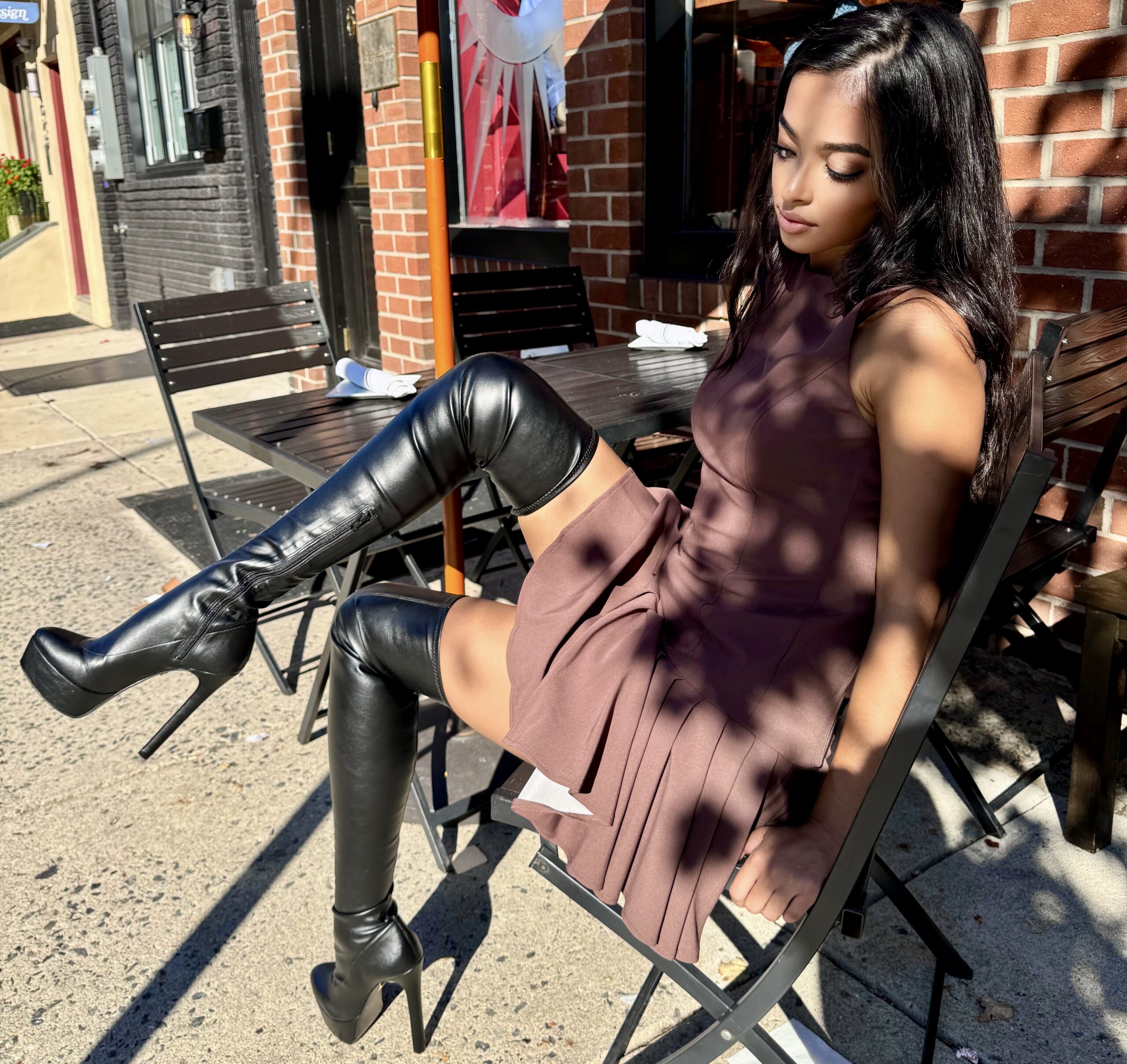
Ruthie Davis ‘Brittany’ boot in black. Image courtesy of Ruthie Davis.
Forging a Global Customer Base
Ruthie Davis’s designs attract a diverse clientele, from Hollywood celebrities to everyday customers worldwide. “My customers want to stand tall and stand out,” she says. While her shoes are particularly popular in markets like Miami, Los Angeles, and Dallas, Davis is always surprised by the range of her audience. “We ship to every state, including Hawaii and Puerto Rico, and internationally to Europe, Dubai, and Australia.”
Interestingly, a significant portion of her customers are men buying gifts. “They’re some of our most loyal clients,” Davis says. “Once they see how much their partners love the shoes, they keep coming back.”
Lessons Learned
Reflecting on her journey, Davis shares that the biggest lesson has been to focus on what matters. “Early on, I thought I needed to check off certain boxes—like having a cool office or being featured in certain magazines—to feel legitimate,” she says. “But what really matters is building and selling a superior product.”
Davis is passionate about mentoring emerging designers and helping them avoid common pitfalls. “Many indie brands focus on press and validation instead of sustainable sales,” she says. “It’s one of the reasons I’m writing a book—to provide a roadmap for small designers to survive and thrive as micro-brands.”
Looking Ahead
Ruthie Davis is not only redefining footwear but also championing a new model for independent fashion brands—one that prioritizes sustainability, longevity, and authenticity. With innovations like bio-leather in the pipeline and a commitment to mentoring emerging designers, she is focused on ensuring that the next generation of fashion creatives can thrive in an increasingly competitive industry. Davis’s journey shows that bold, sexy designs and responsible practices can coexist, paving the way for a more thoughtful future in fashion.
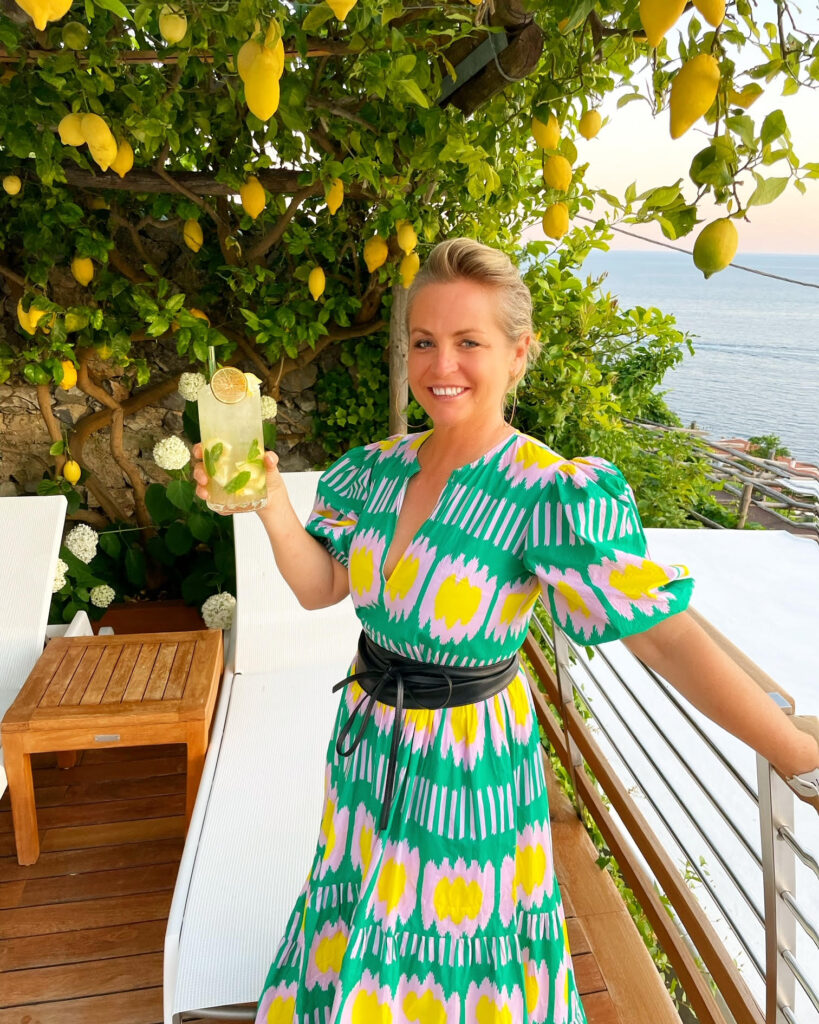
Founder and CEO of Azure Road, Lauren Mowery is a longtime wine, food, and travel writer. Mowery continues to serve on Decanter Magazine’s 12-strong US editorial team. Prior to joining Decanter, she spent five years as the travel editor at Wine Enthusiast. Mowery has earned accolades for her writing and photography, having contributed travel, drinks, food, and sustainability content to publications like Food & Wine, Forbes, Afar, The Independent, Saveur, Hemispheres, U.S. News & World Report, SCUBA Diving, Plate, Chef & Restaurant, Hotels Above Par, AAA, Fodors.com, Lonely Planet, USA Today, Men’s Journal, and Time Out, among others.
Pursuing her Master of Wine certification, she has also been a regular wine and spirits writer for Tasting Panel, Somm Journal, VinePair, Punch, and SevenFifty Daily. Mowery is a graduate of the University of Virginia and Fordham Law School, and she completed two wine harvests in South Africa.
Follow her on Instagram @AzureRoad and TikTok @AzureRoad


